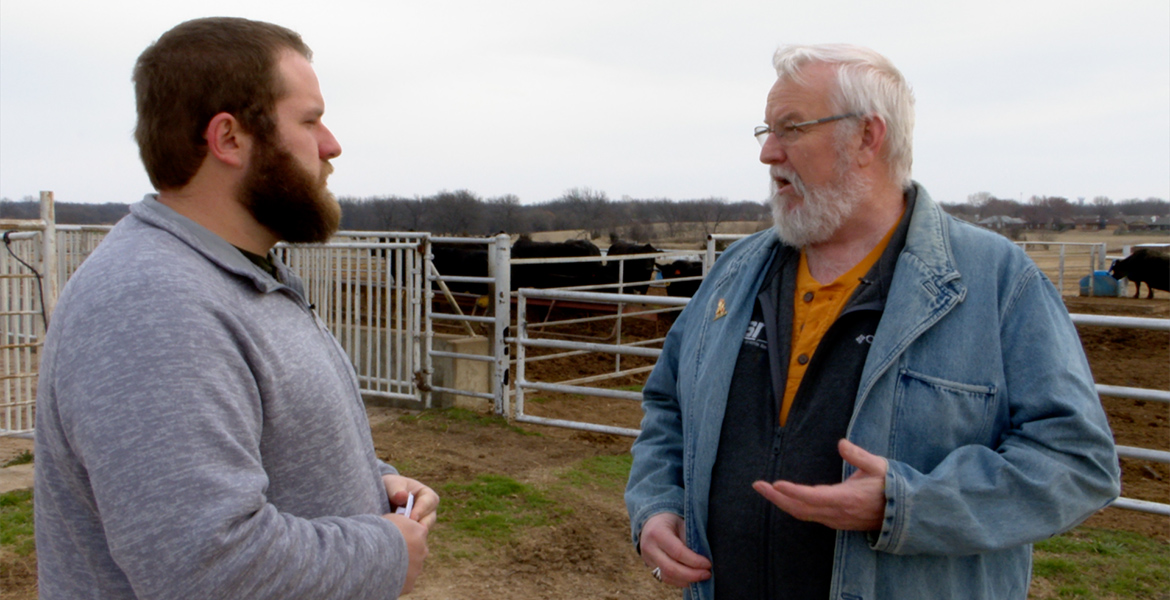
China coronavirus outbreak heightens trade concerns
Tuesday, February 18, 2020
As agricultural markets respond anxiously to China’s attempts to control its coronavirus outbreak with a countrywide quarantine, economists are urging patience.
The disruptions could turn out to be no worse than the economic equivalent of a few sniffles to international trade, Oklahoma State University experts said. Only two months since coronavirus 2019-nCoV, or COVID-19, was first identified in Wuhan, China, it is still too early for projections.
“We are in uncharted territory,” said Larry Sanders, OSU Extension agricultural economist. “It’s been said that when the United States has an economic downturn, other countries catch a cold, and vice versa. Now, our biggest trading partner has a real virus and the rest of the world is dealing with the symptoms.
“We were just getting back on our feet from the way the current administration has dealt with trade difficulties in China – primarily the tariff situation, which harmed U.S. agriculture. We finally felt the trade deal that had just been worked out would leave us in a good position for at least a couple of years,” he said. “Now, though, China’s circumstances have changed and we don’t know exactly what to expect.”
At the beginning of February while speaking at a cattle convention, U.S. Department of Agriculture Secretary Sonny Perdue verbalized that uncertainty when he said the deadly infection might well draw down developing trade deals with China. Beijing agreed to buy an additional $12.5 billion in U.S. farm products this year, but the healthcare disaster could not have been predicted, Perdue said. He counseled the need to be “understanding” without providing specific details.
Many U.S. businesses, organizations and schools have cancelled travel to China, including OSU. In a recent prepared statement, OSU University Health Services said school officials continue to monitor information from the state Department of Health and the Centers for Disease Control and Prevention. In the meantime, all university-sponsored travel plans to China have been suspended and future trips are pending direction from state and federal agencies.
OSU agricultural marketing professor Kim Anderson said the situation carries emotional undertones for local producers as well as economic weight – uncertainty heightens anxiety. He cited a recent report from Allendale Inc. that suggested possible adjustments in international trade lines.
“Grain markets remain unsettled by new cases of the coronavirus amid warnings by world health leaders that that the virus is still susceptible to spread outside of China,” Allendale’s researchers said. “Strategie Grains estimates that the EU soft wheat harvest will fall from 139.8 million tonnes to 138.6 million; they note that the reduction will be more than offset by a bumper crop in Russia barring a weather event.”
Sanders, Anderson and other OSU agricultural experts said the effects of China’s self-imposed quarantine fall into two broad economic categories: the decline in trade deals across the border and the slowdown of productivity within the border as consumers and workers are stuck at home.
“We’re seeing a lot of impact now in the meat industries, probably more so than on the crop side of agricultural trade because meat is a more perishable product,” OSU Extension livestock marketing specialist Derrell Peel said. “It certainly has had a negative impact in the futures markets for cattle and hogs. Those markets seem to have stabilized at a lower level, but we’re not going to see a quick recovery until we have a better sense of the situation.
“Is the coronavirus going to turn into a major worldwide event? It’s just too early to tell,” Peel said.
More than 70,000 people have been infected in China and the number of resulting deaths was just short of 1,800 on Monday, according to information released by China’s National Health Commission.
MEDIA CONTACT: Brian Brus | Agricultural Communications Services | 405-744-6792 | BBrus@okstate.edu
